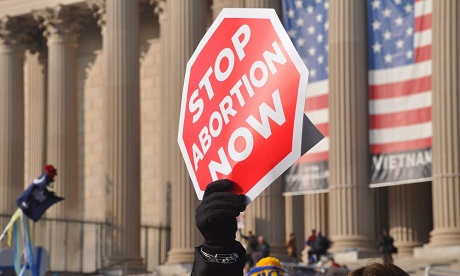Not long ago, every U.S. cleric — bishop, priest and deacon — received a reprint of Cardinal Raymond Burke’s 2007 essay from Periodica de Re Canonica, the annual 700-page canon law journal of the Gregorian University in Rome.
Burke documents the church’s history of legislating against giving Communion to persons “obstinately persevering in manifest grave sin.” It begs the question of what comprises such sin.
A San Diego group, Catholic Action for Faith and Family, has reprinted, packaged and mailed the 64-page booklet, which retitles Burke’s essay as “Deny Holy Communion?”
Founded by Thomas J. McKenna, who acts as Burke’s scheduler and is involved with several other lay Catholic organizations, Catholic Action for Faith and Family’s two episcopal advisers are Burke himself and San Francisco Archbishop Salvatore J. Cordileone.
Determining what comprises “manifest grave sin” seems uppermost in the mind of Cordileone, who last year banned then-Speaker of the House of Representatives Nancy Pelosi from Communion in his archdiocese.
In an April 2022 letter, Cordileone wrote to the speaker, who professes to be a devout Catholic, “You are not to present yourself for Holy Communion … until such time as you publicly repudiate your advocacy for the legitimacy of abortion and confess and receive absolution of this grave sin.”
Therein lies the rub, and the confusion. On the other side of the country, Washington Archbishop Cardinal Wilton D. Gregory has said he would not deny Communion to President Joe Biden, another Catholic politician on the wrong side of Cordileone’s reading of the law.
Late last month, Bishop Thomas J.J. Paprocki of the diocese of Springfield in Illinois, a canon lawyer who has banned legislators in his state who voted to allow abortion, threw mud into the larger equation with an ungentlemanly critique of San Diego’s bishop, Cardinal Robert McElroy, who had published an article in America magazine advocating a more pastoral approach to related questions.
In the middle of all this, the Vatican — in the person of Pope Francis — opposes using Communion as a political weapon.
What does double effect have to do with the fracas? Well, President Biden and the former speaker say they are “personally opposed” to abortion even as they back measures to keep it legal and accessible.
The stretch here is their argument that legalized abortion prevents a worse result. It is a stretch. Does this rise to the level of “manifest grave sin” requiring canonical penalties?
The lawyer-bishops say yes.
The pastoral bishops say no.
Which brings us to the other morality police, the Catholic Laity and Clergy for Renewal, a Denver group headed by a former employee of the U.S. Conference of Catholic Bishops, which reportedly spent millions of dollars to track clerical use of Grindr, advertised as “the world’s largest social-networking app for gay, bi, trans and queer people.”
Despite canon law’s insistence on not damaging individuals’ reputations, the Catholic Laity and Clergy for Renewal does not see its spying as wrong. Founded in response to the scandal surrounding former Cardinal Theodore McCarrick, they say their aim is to protect the church.
From what?
Here, the argument of Military Archbishop Timothy Broglio, president of the bishops’ conference, rises: He connects priest pederasty with homosexuality.
For Catholic Laity and Clergy for Renewal, then, tracking and sharing clerics’ use of hook-up apps has a good intent.
In July 2021, after the group shared its findings with various bishops and others about clerics’ use of Grindr and its findings were published by the online newsletter The Pillar, Msgr Jeffrey Burrill was forced to resign as general secretary of the U.S. Conference of Catholic Bishops.
It did not affect his future ministry, however. He is now the administrator of a Wisconsin parish.
The result of all this?
Are Catholics any better evangelized on the problem of abortion as a moral and political issue?
Are the people of God better served when errant clerics are publicly excoriated?
Catholicism does not allow abortion or same-sex relations.
That is well known.
But is this evangelization?
Is anyone even paying attention?
Or have the church and Catholicism in general become ignored footnotes to the news?
- Phyllis Zagano is an internationally acclaimed Catholic scholar and lecturer on contemporary spirituality and women’s issues in the church.
- Republished with permission from the author.
